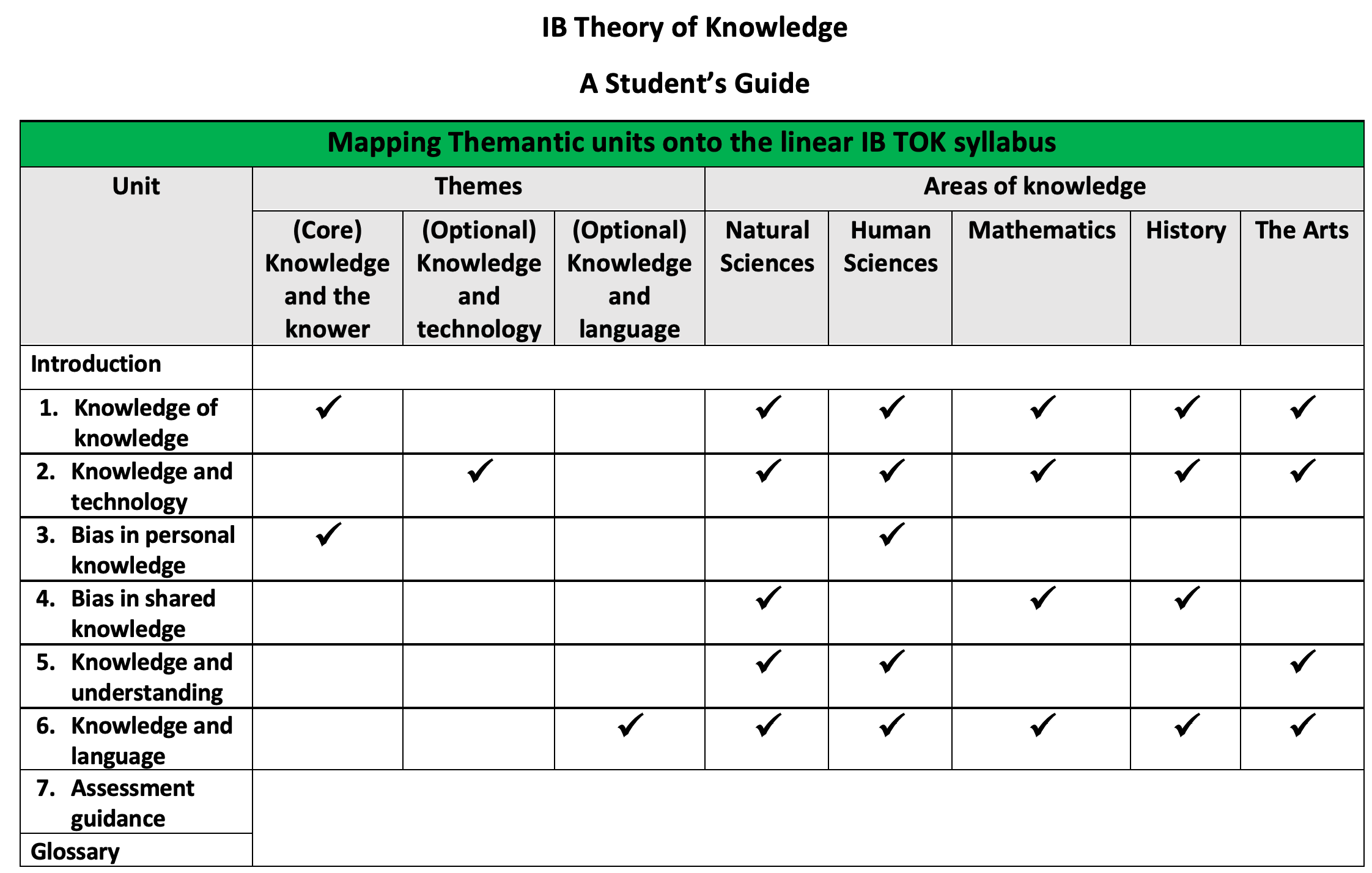- Themantic EducationHome
- IB TOK - A Student's Guide - Unit 3 - Bias in Personal Knowledge eBook
- IB TOK - A Student's Guide - Unit 3 - Bias in Personal Knowledge eBook
IB TOK - A Student's Guide - Unit 3 - Bias in Personal Knowledge eBook
- SKU:
- Category: eBooks, IB Theory of Knowledge
Like all themantic materials, this eBook chapter "Bias in Personal Knowledge" from our new TOK textbook is based on addressing real world problems and issues that are meaningful and relevant for students.
-
Description
The key questions targeted in Unit 3 (Bias in Personal Knowledge) are simple but at the same time profound:
- In what ways does bias affect our everyday knowledge?
- Why is our knowledge biased?
- Can bias be reduced?
This chapter includes 10 lessons focused on how bias (one of our overarching concepts) manifests itself in the knowledge that we acquire in our everyday lives.
Nobody wants to be biased. But nobody can avoid being biased. The chapter will guide students in a journey of self-reflection through the lens of TOK concepts: how can they know if their knowledge is biased? Is there anything they can do about it?
It also builds several key thinking skills, most importantly, analogical reasoning and what-if thought experiments.
You will see that all four elements of the knowledge framework are consistently addressed in each lesson, but questions of ethics are also specialized in a standalone lesson at the end of the chapter (Compos Mentis).
Warning: After studying the chapter some of your deeply rooted beliefs may be shattered.
Don’t forget to download our (free) Teacher Support Pack for the chapter. It includes all lesson plans, student workbooks, activities and PowerPoint presentations.
As you might know, the IB no longer uses the distinction between personal knowledge and shared knowledge in the Guide, but we decided to revive it because it brings more clarity:
- Bias in Personal Knowledge (Unit 3) links to the IB Core theme, “Knowledge and the knower”.
- Bias in Shared Knowledge (Unit 4) links to areas of knowledge. Areas of knowledge are always areas of shared knowledge.
This is important to understand because TOK essay titles will be based on areas of (shared) knowledge. Therefore, arguments related to personal knowledge (Chapter 3) will not be that relevant in a TOK essay, however, they will be highly relevant in a TOK exhibition. Which is why it makes sense to study this chapter in the first year of the IB DP programme.
This also explains why there are not so many connections to areas of knowledge in this chapter. Refer to this table for a general overview of how Themantic chapters map onto linear TOK units:

Author: Alexei Popov
Delivery: Download Link sent by Email
Format: Digital
License: Teacher**A teacher license allows you to share this with students enrolled in your school. It can be made available through internal digital mediums (e.g. email, Managebac, moodles or wikis) but cannot be published on publicly available sites. This license is for one teacher. If one organization has multiple teachers, one license per teacher must be purchased.
Related Products
Bundle
IB Psychology: A Student’s Guide - Course Bundle (2025 Edition)
Bundle
IB Psychology: A Student’s Guide - eBook Bundle (2025 Edition)
Recently Viewed


































